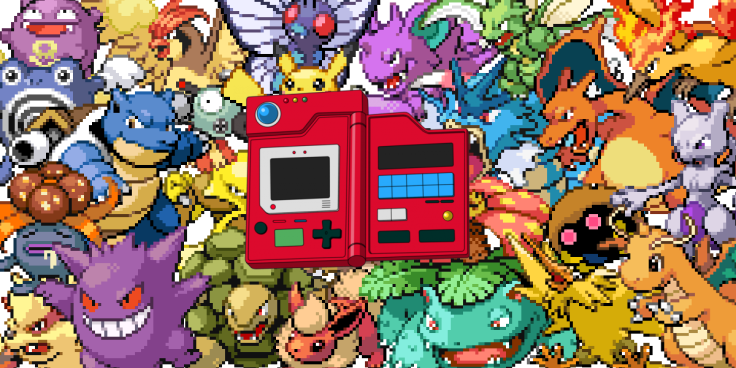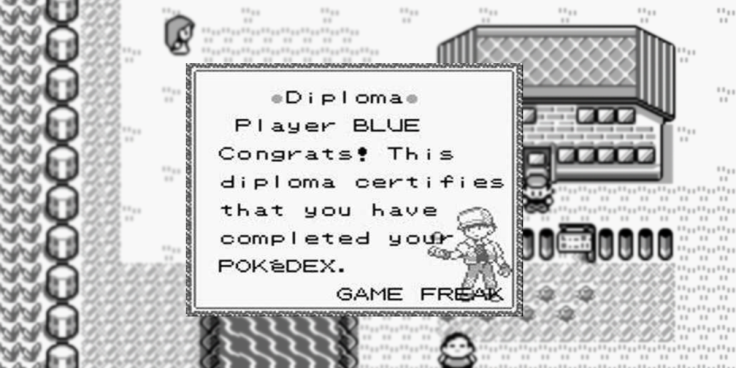Pokemon 20th Anniversary: Catching all 151 Pokemon was an anti-climactic rite of passage

Pokémon Red was the first game I completely fell in love with. I had played and enjoyed the likes of Super Mario Land 2: Six Golden Coins, Goldeneye, and Ocarina of Time before then, but it wasn't until Pokémon Red that a single game really took over my life. I wasn't the only 9-year-old this happened to either.
I was there when Pokémon gripped the world. Not as a confused onlooker wondering what the hell was going on, but as a child on the front lines of this booming fandom – a face in a sea of faces angling their GameBoys toward the nearest light source. The trading card game, cartoon series, toy figures inside Pokéball shells and most of all, the games – I was obsessed with it all.
In October 1999, my parents, blissfully unaware of Pokémania, bought my brother and I a copy of the game each. Being an Arsenal fan I naturally chose Red, and being the younger sibling who never got to make important decisions, my brother ended up with Blue. We played the game the rest of that day and for many more to come, probably gifting our parents their longest period of calm since bringing us into the world.
To catch 'em all
I probably sank more time into Pokémon Red than I have into any other game. If I remember correctly, I ended up spending some 200 hours improving, fine-tuning and training my team to compete against friends whenever we were within reach of a link cable. It wasn't until long after the bulk of my time with the game however, that I finally completed the challenge set out by the series' mantra, and caught them all.
Pokémon has always offered a hidden depth to its most dedicated players. Those of us from the Red and Blue days remember making the all-important decision regarding which starter to take on our journey, the excitement of that first gym leader battle against Brock, finding and later battling Snorlax, discovering that Magikarp evolves into a badass, using Fly for the first time or purchasing the bike and practically feeling the virtual wind on our faces. So many great moments, but so many more beyond what was required.

The majority of this feeds into completing the Pokédex. Learning about how trading would prompt certain Pokémon to evolve, trying to get each evolution of Eevee, returning to the Safari Zone to capture everything, finding the three legendary birds.
There were more tricks for the truly dedicated of course. I was a frequent visitor to the shores of Cinnabar Island, which I ground like an overzealous waiter in the hope of catching a glimpse of Missingno – the product of the game's most famous glitch. The duplication glitch starts with talking to a man in Viridian City before flying to Cinnabar and summoning an appearance from Missingno, which causes the duplication of any item in the sixth slot of a player's inventory. This could mean unlimited Master Balls (which catch Pokémon with a 100% success rate) or Rare Candies (which boost a Pokémon's level by one with each use).
The candies helped me create a team of Level 100 Pokémon to compete against my friends' similarly-powered teams, which circumvented any drama over one team being of a higher level than someone else's. After months of battling, I switched tact and decided it was time to catch 'em all.
A friend of a friend of a friend
With both versions of the game under one roof, trading the platform exclusive Pokémon – like Arcanine and Scyther in Red, Ninetails and Pinsir in Blue – was relatively easy. Before long, like so many others, I had 150 of the blighters. There wasn't a lot that could be done at that point, so myself and a lot of my friends started to play the games less and less. That is, until a friend claimed a friend of his own knew someone (presumably with an uncle who worked for Nintendo) in possession of a Mew.
Mew is the legendary, 151<sup>st Pokémon, which was only available through complicated glitches we either weren't aware of or didn't want to risk our game saves to accomplish, and special events organised by Nintendo. How this friend of a friend of a friend had acquired Mew I don't know, but my friend thought he'd be able to get it and trade it briefly to us so we could lay claim to Pokémon's ultimate accomplishment.
With friends gathered, we traded my friend's friend's friend's Mew between each of us until most had at long last completed the Pokédex. One of us was, unbeknownst to him, a Flareon short. We laughed.
What follows the knowledge of completion marks the true end of the game. At the top of Celdaon Condominiums is the in-game home of real-life development studio Game Freak, the team behind Red and Blue. In a strange meta moment, the player is awarded a diploma for completing the Pokedex and... well... that's it.
It's underwhelming, but in a serene way, exemplified by the next 30 or so seconds as most players choose not to quit immediately, but to exit the building, walk a bit then save their game and quit. As if hopeful that there would be more, another battle against your Rival, another, truer ending. There isn't one.
Any one player's time with Pokémon ends only when they want it to, when they've had their fill. For some that's after the Elite Four champion, for others it's after battling Mewtwo or proving to be the best among a group of friends. Others never lose the itch that keeps them coming back to the series again and again.
For all the latest video game news follow us on Twitter @IBTGamesUK
© Copyright IBTimes 2025. All rights reserved.


















